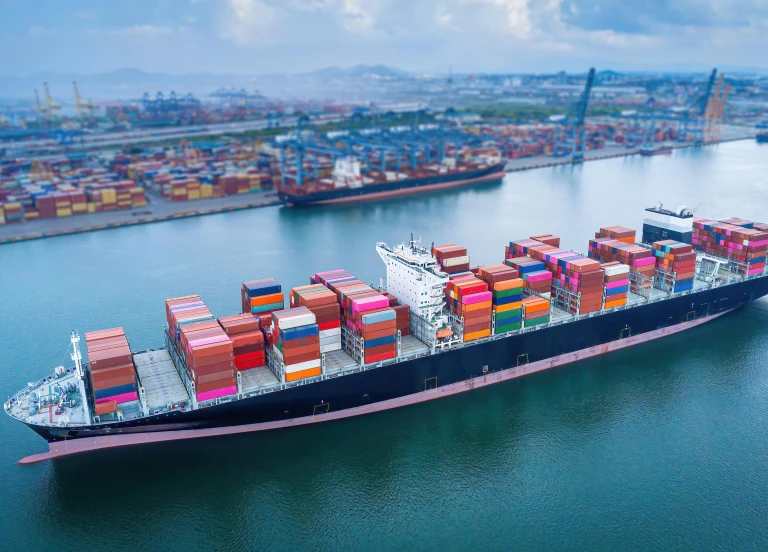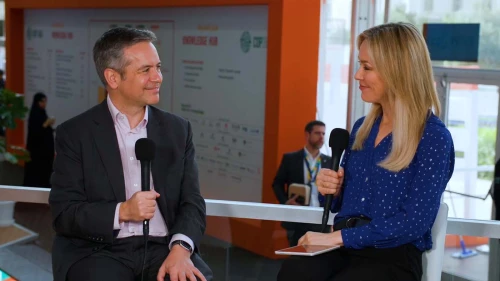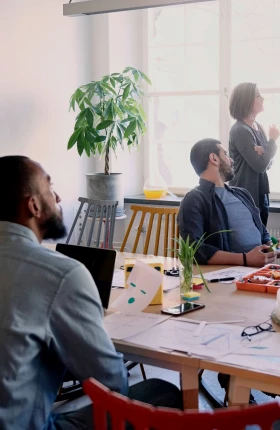For the first time, global trade is a primary topic at the UN Climate Change Conference (COP28). BCG associate director Tim Figures explains why climate action and trade are intersecting and how governments and companies can shape green trade.
Meet Tim
BCG: For the first time ever, there is a “Trade Day” at COP this year. Why is trade now a prominent topic in climate circles?
Tim Figures: The trade and climate agendas have been converging for a while. The fact is, the world cannot decarbonize without the help of the global trading system. Many of the things we need—like lithium for batteries or rare earth minerals for wind energy—will be widely available only through international collaboration and trade.
There is also another factor. When we trade goods, we are also essentially trading the carbon that was emitted in production of those goods. So if I buy a ton of steel that was produced in a country where significant emissions were generated in the manufacture of that material, I am importing those emissions. We need to pay very careful attention to that.
That is what is driving major shifts in the regulatory environment such as the Carbon Border Adjustment Mechanism (CBAM) in the EU and the Inflation Reduction Act (IRA) in the US. These policies are forcing public and private sector leaders to rethink their approach to sustainability and trade.
In what sectors do you expect to see growth of meaningful trade related to climate action?
I think industrial decarbonization, including within transportation, will drive a lot of trade. For example, as the production of green steel scales, meaningful global trade for that material may follow. And within the wind energy sector, export markets may develop for the materials required to build them, the turbines themselves, or even the energy produced. In addition, as new commodities take off, trade may follow. It’s possible we will eventually see sizable exports of products such as green hydrogen and green ammonia.
You mentioned the significance of CBAM and IRA. How are these government policies shaping global trade?
Right now, different parts of the world are decarbonizing at different speeds. Developed economies have set net zero targets for 2050, while in China the aim is for net zero in 2060, and for India the goal is 2070.
CBAM is a consequence of that dynamic. It aims to avoid carbon leakage, where products produced with high emissions are imported into markets with stricter decarbonization requirements for their own manufacturers. Of course, the EU has priced carbon for domestic manufacturing since 2005. CBAM extends that concept to imports. So, if you are selling high-carbon products into the EU, those products will be subject to carbon pricing. This is already having global ramifications. Turkey, for example, is looking at introducing its own carbon-pricing scheme in order to be able to maintain its export competitiveness when selling goods into the EU.
IRA takes a fundamentally different approach, providing generous subsidies for green production in the US, but imposing conditions on where the key inputs required—such as critical raw minerals—can be imported from.
Both of these policies reveal a fundamental tension between trade and climate policy. The World Trade Organization is founded on the “most favoured nation” principle, meaning that you should treat every trading partner the same. But under the Paris Agreement, the key principle of “common but differentiated responsibilities and respective capabilities” (CBDR-RC) implies a variable approach, often taken to mean that developed nations should shoulder a greater share of the responsibility for decarbonization. We are already seeing CBDR arguments being used by some emerging markets to argue against the introduction of the EU’s CBAM on the grounds that it treats all countries the same.
That tension between promoting fair trade and preventing carbon leakage plays out in both CBAM and IRA. It will be critical to resolve that tension.
This obviously has major implications for developing countries that are not as far along in decarbonizing. How are those countries impacted?
Some countries could be significantly impacted, such as less developed countries (LDCs) that depend to a great extent on exports of high-carbon products to the EU. In Mozambique, for example, the country’s main export industry is aluminium, the majority of which (worth around 7% of the country’s GDP) currently goes to the EU. That makes decarbonization of Mozambique’s aluminium sector absolutely critical if the country is to maintain its carbon competitiveness and avoid a significant negative impact on its GDP.
It is reasonable for developed countries to provide support to countries going through that transition. And at COP last year we saw some progress on this, with the establishment of the Just Energy Transition Partnerships with South Africa and Indonesia. For LDCs such as Mozambique, the best approach is probably through international development assistance that is specifically targeted to help them respond to changing regulatory requirements in key export markets.
What does global trade look like in the future?
We expect a modest increase in global goods trade between now and 2032. But who is trading with whom will change. We see less global but more regional trade. For example, trade within the Global South will increase, as will trade within North America.
Some of this will be shaped by climate action. US and Mexico trade will massively increase, in part due to lower emissions from transportation between the two countries compared to US trade with other geographies. Trade between countries such as China and India and the EU will likely be impacted in part due to the CBAM.
We also expect more countries to follow the EU’s lead and introduce CBAMs. Without coordination between these countries, this could have a significant impact on global trade, leaving multinational companies struggling to meet a range of slightly different regulatory requirements in different markets. One way of addressing this issue would be for such countries to come together to form a climate club, exempting trade between them from the CBAM process. Over time, the promise of barrier-free trade might encourage more countries to meet the regulatory conditions needed for club membership, boosting their export competitiveness.








